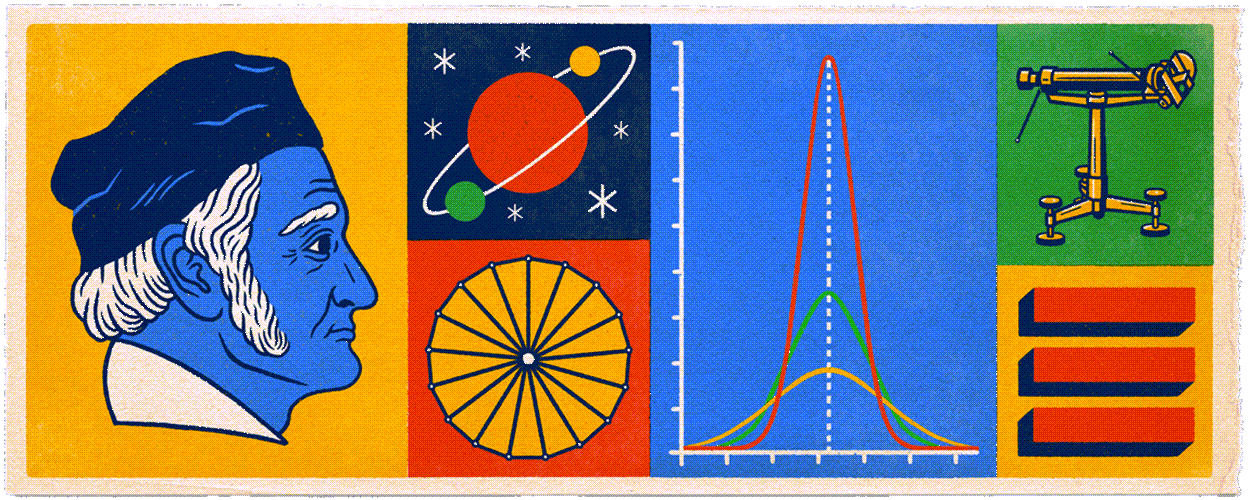Johann Carl Friedrich Gauß: The Mathematical Genius Who Shaped Modern Science

Image Courtesy: Google Doodle
Johann Carl Friedrich Gauß (30 April 1777 – 23 February 1855) was a German mathematician and physicist who made significant contributions to many fields in mathematics and science. He is widely regarded as one of the greatest mathematicians in history. He made significant contributions to several fields of mathematics, including number theory, geometry, and statistics.
Life and Career
Johann Carl Friedrich Gauß was born on 30 April 1777, in Brunswick, Germany. It was far from the first time Gauß exhibited mathematical gifts; at the age of three, he found an error in his father’s business payroll accounts, and by the age of five, he was made responsible for overseeing them. At age seven, he shocked his teachers by almost instantly summing integers from 1 to 100, using a formula he created himself. Gauß made substantial contributions to the fields of Algebra, Astronomy, and non-Euclidean geometries. He developed the Theorema Egregium, a method of calculating the curvature of a surface using angles and distances, as well as Gaußian statistics (the bell curve) and the Gauß Divergence Theorem. At the age of 24, he wrote “Disquisitiones Arithmeticae” which laid the foundation for modern number theory and is widely regarded as one of the most influential mathematics texts of all time.
He showed exceptional talent in mathematics from an early age and completed his formal education at the age of 17. He later attended the University of Göttingen, where he received his doctorate in mathematics at the age of 23.
Gauß made many significant contributions to mathematics throughout his career. His work in number theory, including his discovery of the prime number theorem, is particularly noteworthy. He also made important contributions to differential geometry, statistics, and astronomy.
Gauß was also a prolific writer, publishing hundreds of papers and books throughout his career. He was known for his ability to solve difficult mathematical problems with ease and was revered by his peers as a mathematical genius. He died on 23 February 1855, in Göttingen, Germany, at the age of 77.
Award and Legacy
Gauß received many awards and honors throughout his career, including the Royal Society’s Copley Medal in 1838 and the French Academy of Sciences’ Grand Prix in 1813.
Gauß’s contributions to mathematics and science continue to be felt today. His work on number theory laid the foundation for modern cryptography and coding theory, and his contributions to differential geometry are still studied in physics and engineering. He is also known for developing the Gaussian distribution, which is widely used in statistics. Gauß’s legacy is also reflected in the many mathematical concepts and equations that bear his name, including Gauß’s law in electrostatics, Gauß’s divergence theorem in vector calculus, and the Gauß-Markov theorem in statistics. He is widely regarded as one of the most influential mathematicians in history and is often referred to as the “Prince of Mathematicians.” On 30 April 2018, Google celebrated Johann Carl Friedrich Gauß’s 241st Birthday with a doodle.
Observer Voice is the one stop site for National, International news, Sports, Editor’s Choice, Art/culture contents, Quotes and much more. We also cover historical contents. Historical contents includes World History, Indian History, and what happened today. The website also covers Entertainment across the India and World.

